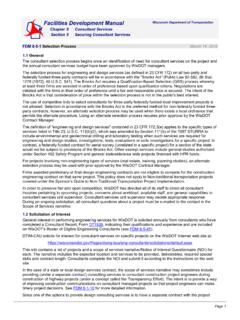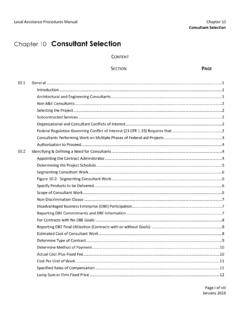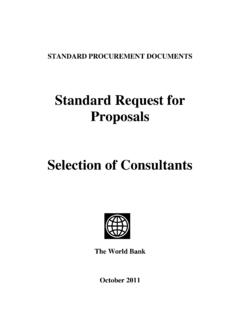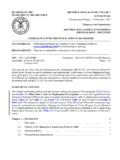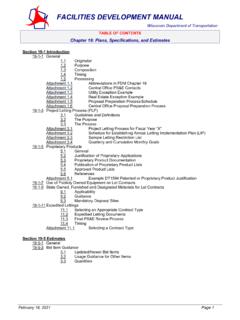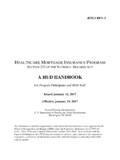Transcription of Business Management & Training Series How To Write a ...
1 Improve yourself and your Business Advance your career, train staff, learn new Management techniques Home Business Manuals Tourism Manuals Contact Us Business Management & Training Series How To Write a consultancy Brief & Select the Right consultant By Rob Tonge How To Write A consultancy Brief & Select The Right consultant 2. HOME Business Manuals Tourism Manuals Contact Us Thank you for downloading the sample chapters of How To Write A consultancy Brief &. Select The Right consultant published by Gull Publishing. This excerpt includes the Table of Contents and the first chapter , which overviews the book. We hope you find this information useful in evaluating this book.
2 ROB TONGE, 1993, 1995, 1997, 2000, 2006, 2008, 2010. First published 1993. Second edition 1995. Third edition 1997. Fourth edition 2000. Fifth edition 2006. Sixth edition 2008. Seventh edition 2010. GULL PUBLISHING PTY LTD. PO BOX 26 COOLUM BEACH, QUEENSLAND 4573 AUSTRALIA. ISBN 978 1 876834 61 6. Design and typesetting by Ad Image This manual is Copyright. With the exception of worksheets, no other part of this publication may be reproduced, stored in a retrieval system or transmitted in any form or by any means, electronic, photocopying, recording or otherwise, without prior written permission. Enquiries should be directed to the publisher. DISCLAIMER. This manual is provided to purchasers with the express knowledge and understanding that Gull Publishing Pty Ltd, its authors, directors, shareholders, agents and employees, the producers of the manual or any approved person working on behalf of these companies (hereafter referred to as the Company and Agents') will not be responsible or in any way liable for the results of any act done or omitted to be done on the basis of information contained in this manual, nor for any errors or omissions in the said information.
3 The Company and Agents expressly disclaim all and any liability for any loss or damage which may be suffered by any person or corporate entity which may make use of this manual or any person arising our of or as a result of or in connection with any act done or omitted to be done by the person using the manual in reliance, whether whole or partial, upon the whole or any part of the contents of this manual whether that loss/damage is caused by any fault or negligence on the part of the Company and Agents, or otherwise howsoever. How To Write A consultancy Brief & Select The Right consultant 3. HOME Business Manuals Tourism Manuals Contact Us chapter 1: Introduction.
4 5. What Intending Users of consultancy Services Should Know .. 5. The Need for a consultant Selection Plan .. 6. The Aim of this Manual .. 7. The Evaluation & Appointment Process .. 8. The Selection Process Flow Chart .. 8. chapter 2: The consultant 's Role .. 10. Types of consultancy Organisations .. 10. Large Firms Vs Small Firms .. 11. Why Consultants are Used .. 11. The Benefits of Using A consultant .. 12. Technical Vs Process Consulting .. 12. consultancy Fees .. 13. Why Project failures Occur .. 13. What Consultants Expect from Clients .. 15. chapter 3: Is There A Need To Engage A consultant ? .. 16. Checklist .. 19. chapter 4: How To Write A consultancy Project Brief Or Tender.
5 20. Elements of the Brief .. 20. Charging for Tender Documents .. 23. Checklist .. 24. chapter 5: How To Find Appropriate Consultants & Generate Project Proposals . PROJECT PROPOSALS .. 25. Referral & Recommendation .. 25. Professional Associations .. 25. Advertising .. 26. How to Establish a Consultants' Register .. 27. Checklist .. 32. chapter 6: How To Evaluate Proposals .. 33. Rating the Proposals .. 36. Page-Limited proposals .. 36. Checklist .. 37. chapter 7: Conducting Interviews & Making The Final Selection .. 40. The Interview Panel .. 40. Planning the Interviews .. 40. Conducting the Interviews .. 43. References .. 43. Fees .. 44. Making the All-Important decision.
6 44. Notifying the Unsuccessful Firms .. 45. Feedback .. 45. Checklist .. 46. How To Write A consultancy Brief & Select The Right consultant 4. HOME Business Manuals Tourism Manuals Contact Us chapter 8: Finalising The Contract & Managing The Project .. 47. The Contract .. 47. Project Management .. 49. Avoid Changing the Goal Posts' .. 50. Checklist .. 51. chapter 9: The consultant /Client Relationship .. 52. Avoiding Interpersonal Conflict in the Relationship .. 53. Avoid the Parasite' Syndrome .. 54. Checklist .. 55. chapter 10: Performance Evaluation .. 56. consultancy Project Report .. 57. Checklist .. 59. How To Write A consultancy Brief & Select The Right consultant 5.
7 HOME Business Manuals Tourism Manuals Contact Us 1. Introduction chapter One D uring the past decade the consultancy profession worldwide has experienced rapid growth. In Australia, this growth is currently estimated to be around 15% per annum. In the evolution of consulting during this period, the traditional dominance of large multi- national firms has given way to the emergence of many sole practitioners and small partnerships offering highly specialised services in over 130 different fields of expertise, as shown on page 9 - and this list is not exhaustive. In parallel with growth in the provision of consulting services, the need for increased efficiency, productivity and innovation, together with rapid advances in technology and the requirement for specialist expertise on a one-off' basis, is resulting in much wider use of consultants by private enterprise and all levels of government.
8 But, as with any sector of Business experiencing rapid growth, the consultancy profession has not been without its difficulties. In recent years there has been mounting criticism - much of it public - about standards of performance, excessive fees, and lack of professionalism. Part of the underlying problem is that with the exception of consulting disciplines requiring formal qualifications, for example, engineering, architecture, surveying, virtually anyone can set themselves up as a consultant regardless of skills, qualifications or experience. Furthermore, there is no universal accreditation system. While it can be argued that national associations representing various sectors of the profession set standards for membership, in some instances membership of these organisations is not necessarily an indication of competence.
9 Also, there are many highly skilled consultants who are ineligible for membership of these associations simply because of the particular specialist field in which they work, and/or because they do not hold academic qualifications. As well, a large number of specialist fields are not represented by professional associations. From a client viewpoint, these issues, together with the ever-increasing range of specialist services being offered, can make the choice of an appropriate consultancy firm for a particular project a challenging exercise. On the other hand, the whole issue of selection is exacerbated because many client organisations have a misconception of the consultant 's role, and tend to take an ad hoc approach to the selection process, lacking the how to' knowledge of evaluating consultant proposals, the right questions to ask, and the additional information that should be obtained during interviews.
10 Too often a consultant is engaged at face value without adequate probing of capability and experience, and without having their references checked, despite the fact that the appointment usually involves substantial financial outlay. How To Write A consultancy Brief & Select The Right consultant 6. HOME Business Manuals Tourism Manuals Contact Us Another key issue in the use of consultants is accountability. One complaint sometimes made by clients is that consultants do not assume sufficient responsibility for results, for the reason that a consultant can depart at the completion of a project, irrespective of the results or other outcomes. Nevertheless, there is now the need for consultants to be far more accountable and responsible.





